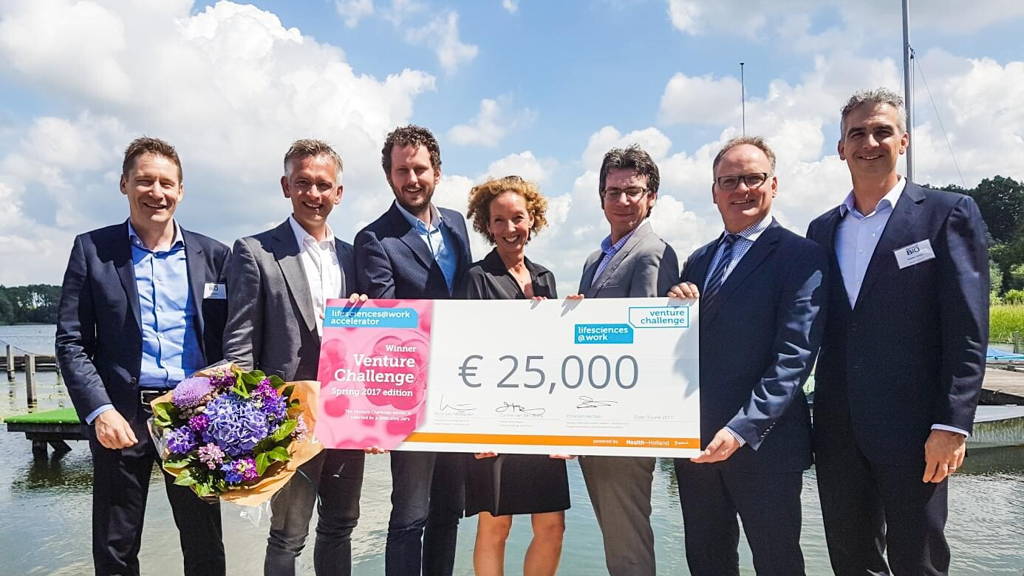Chronic Obstructive Pulmonary Disease (COPD) is a chronic respiratory condition affecting 380 million patients worldwide leading to severe morbidity and mortality. These patients are vulnerable for recurrent infection of the airways leading to exacerbations or lung attacks, characterized by severe shortness of breath and irreversible lung damage.
These lung attacks decrease the quality of life significantly and could ultimately lead to death. Therefore, prevention or shortening the lung attacks is pivotal to maintain the quality of life for COPD patients, for which early diagnosis of infection is required. Current diagnostic methods take 2 to 3 days, while the patient requires treatment within hours upon arrival in the hospital. As a consequence most patients are treated empirically with broad spectrum antibiotics.
"Our ambition is to market our X-halyzer technology for different indications and target groups, such as the diagnosis of lung infections in cystic fibrosis patients and diagnosis of tuberculosis, " says Marien de Jonge, Head of the Laboratory of Pediatric Infectious Diseases, Radboudumc.
X-heal Diagnostics wants to market the X-halyzer technology for different indications and target groups, such as the diagnosis of lung infections in cystic fibrosis patients and diagnosis of tuberculosis. To achieve this goal, we need an initial investment of 2 Million euro to perform clinical trials and certify assays for new indications.
COPD, alone, costs U.S. healthcare systems $50 billion per year. ABI Research forecasts the U.S. will spend the most on chronic respiratory disease wearables, accounting for $6 million in 2022 of $21 million in global market revenues. Following the U.S., Europe and the Asia Pacific will also see high adoption rates. As the nascent market gains momentum, the devices will gradually shift from wireless finger-clips to wrist-worn devices.
These lung attacks decrease the quality of life significantly and could ultimately lead to death. Therefore, prevention or shortening the lung attacks is pivotal to maintain the quality of life for COPD patients, for which early diagnosis of infection is required. Current diagnostic methods take 2 to 3 days, while the patient requires treatment within hours upon arrival in the hospital. As a consequence most patients are treated empirically with broad spectrum antibiotics.
Adressing AMR issue
According to the Venture Challenge Jury the technological innovation of X-Heal Diagnostics addresses the worldwide issues of Antimicrobial Resistance (AMR) by its quick and specific detection. The X-halyzer technology has been developed by researchers from Radboud University Medical Center and Innosieve Diagnostics BV. The Venture Challenge is a bi-annually coaching programme of the valorisation activities of the Top Sector Life Sciences & Health."Our ambition is to market our X-halyzer technology for different indications and target groups, such as the diagnosis of lung infections in cystic fibrosis patients and diagnosis of tuberculosis, " says Marien de Jonge, Head of the Laboratory of Pediatric Infectious Diseases, Radboudumc.
About X-Heal Diagnostics
X-Heal Diagnostics is a joint venture of Radboud university medical centre and Innosieve Diagnostics BV, presents the solution for this unmet need with the X-halyzer technology. This patented diagnostic platform allows specific detection of bacteria from exhaled air within 1 hour, directly enabling targeted treatment.X-heal Diagnostics wants to market the X-halyzer technology for different indications and target groups, such as the diagnosis of lung infections in cystic fibrosis patients and diagnosis of tuberculosis. To achieve this goal, we need an initial investment of 2 Million euro to perform clinical trials and certify assays for new indications.
Wearables changing COPD approach
Up to one billion people globally are affected by chronic respiratory diseases—asthma, allergic rhinitis, and chronic obstructive pulmonary disease (COPD. While in the past, clinicians monitored patients’ vitals through regular checkups, new wearable technology now allows them to track this information remotely. ABI Research forecasts device connectivity will drive new chronic respiratory disease wearable form factors, with shipments to grow from three million shipments in 2017 to 12 million in 2022.COPD, alone, costs U.S. healthcare systems $50 billion per year. ABI Research forecasts the U.S. will spend the most on chronic respiratory disease wearables, accounting for $6 million in 2022 of $21 million in global market revenues. Following the U.S., Europe and the Asia Pacific will also see high adoption rates. As the nascent market gains momentum, the devices will gradually shift from wireless finger-clips to wrist-worn devices.






